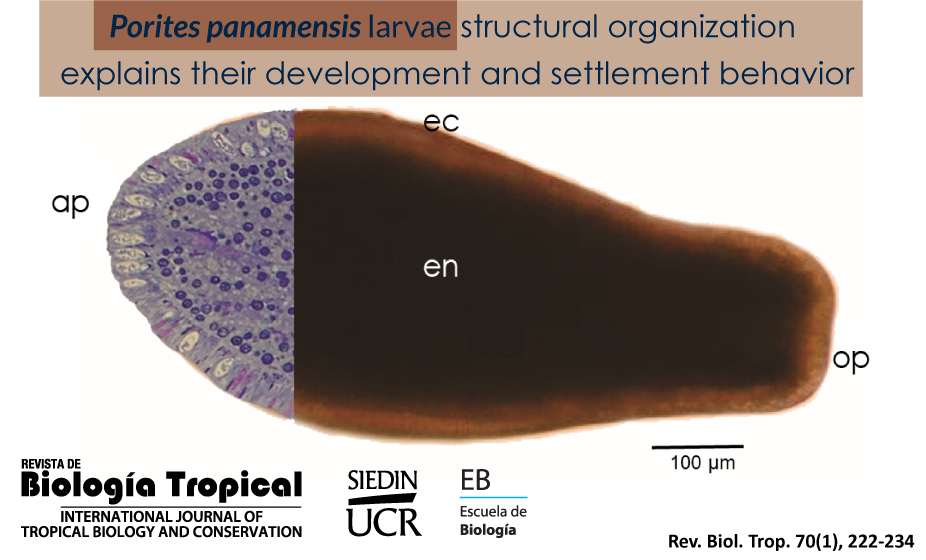Abstract
Introduction: The scleractinian coral life cycle includes planktonic larvae that settle on the benthos, allowing the primary polyp to clone and build a sexually reproducing adult colony. The larval physiology and ecology of Eastern Tropical Pacific scleractinians needs the exploration of basic aspects such as the internal morphology of planulae. Objective: To describe histological and cytological characteristics of Porites panamensis larvae. Methods: During August-July 2019, at Islas Marias Biosphere Reserve, Central Mexican Pacific, we made 14 collections of coral larvae and identified the species with C cytochrome oxidase subunit 1 gene. We used a scanning electron microscope and other techniques. Results: The ectoderm was composed by heterogeneous, mono-ciliated, columnar epithelial cells. Nematocysts were clustered at the oral pole of the ectoderm, and cells were evident in the aboral pole of the ectoderm gland. The endoderm had secretory cells, lipids and symbionts. Conclusions: The abundance of secretory cells and nematocysts in the aboral pole suggests their importance in substrate exploration and larval settlement. Our results support previous descriptions of larval ultrastructure in other coral species.
##plugins.facebook.comentarios##

This work is licensed under a Creative Commons Attribution 4.0 International License.
Copyright (c) 2022 Revista de Biología Tropical







